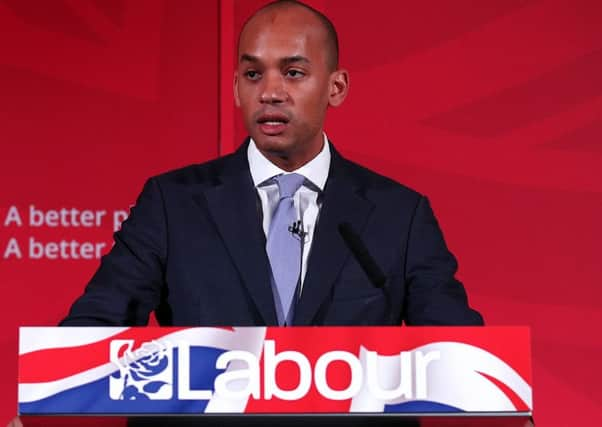Leader comment: The tactics of Hitler's Brownshirts in modern Britain


Chuka Umunna, the former Labour frontbencher, reveals today that he and “loads of colleagues” in the party have been subjected to a campaign of intimidation by “supporters of Jeremy”. Tory MPs like Dominic Grieve and Anna Soubry have also received death threats over their stances on Brexit.
Once these might have been laughed off, but the murder of Labour MP Jo Cox – by a man who shouted “Britain first” in a possible reference to the far-right group of the same name – means such threats cannot simply be regarded as unpleasant but empty.
Advertisement
Hide AdAdvertisement
Hide AdLiving in the UK, democracy can seem unassailable, as if no other form of government could ever replace it, but a glance at other countries and history strongly suggests it is more fragile.
One of the central tenets of liberal democracy is that while politicians and voters may fundamentally disagree – on what can be matters of life or death – they retain a basic level of respect for one another. So when our democracy is attacked, political rivalries are put aside as Home Secretary Amber Rudd and London Mayor Sadiq Khan showed following the terror attacks in London last year. Mr Umunna points out that in 2016 former Ukip leader Nigel Farage said that “if people feel voting doesn’t change anything, then violence is the next step”.
Anyone who resorts to violence – or threats of violence – to try to achieve a political goal is no longer a democrat and such actions must be vigorously opposed and condemned by all right-minded people.
While the tactics used by the Brownshirts in Nazi Germany may only appeal to a minority of people in the UK, they are clearly beginning to have an effect on our elected representatives.
MPs have to, and do, put up with “robust” debate. But if it reaches a point where MPs will no longer speak out on an issue or are hounded out of public life, then our democracy will be in serious trouble. So, this New Year, we could perhaps all resolve to be kinder to our political opponents and tougher on those who are not.
